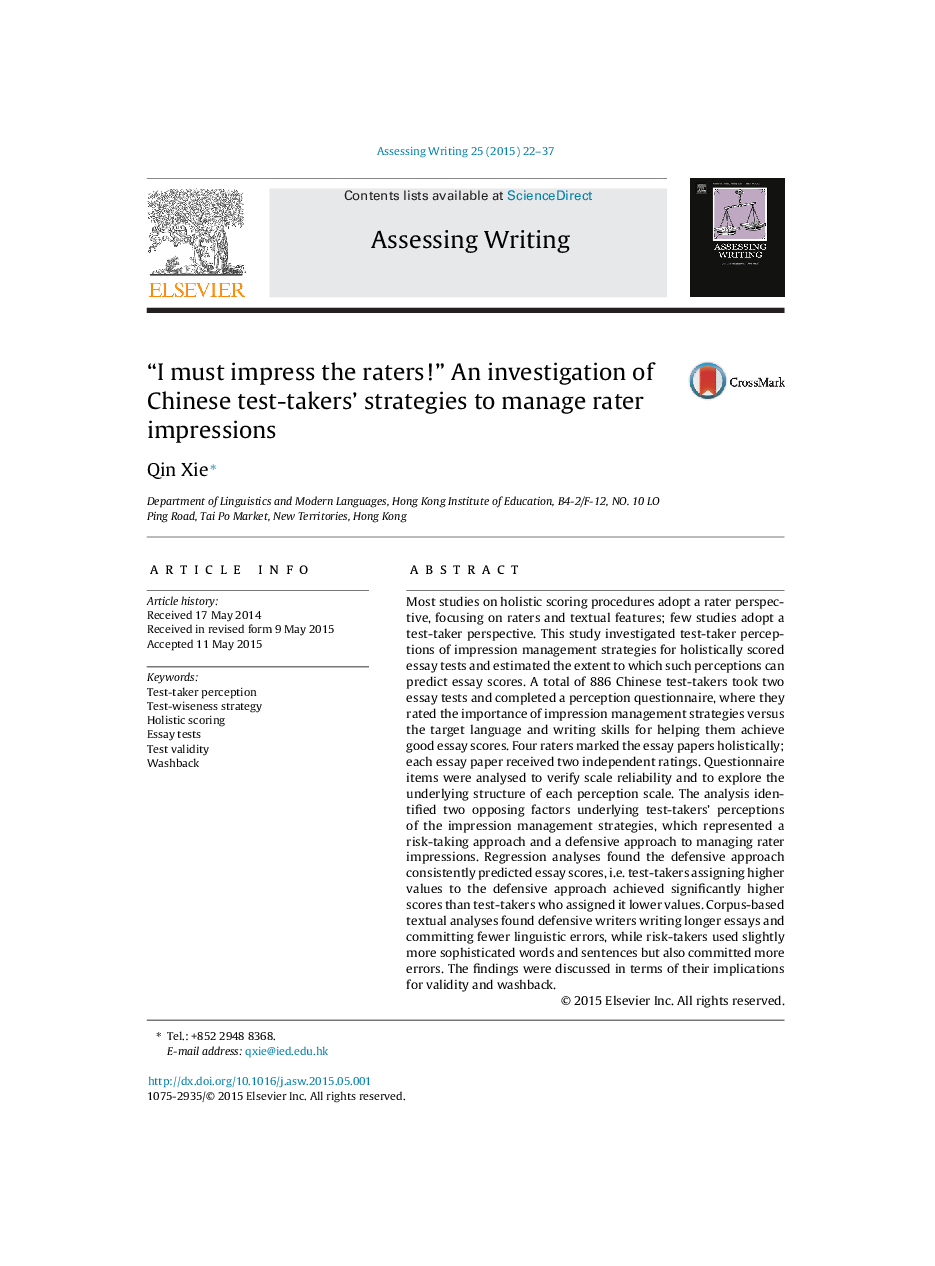| Article ID | Journal | Published Year | Pages | File Type |
|---|---|---|---|---|
| 344207 | Assessing Writing | 2015 | 16 Pages |
•Test-takers were found adopting two approaches to managing rater impressions in essay tests.•Defensive writers consistently achieved higher scores probably because they wrote a longer piece of work and made much fewer mechanical and linguistic errors.•Risk-takers may receive lower scores. Although they attempted more sophisticated words and sentences, they also committed more linguistic errors.
Most studies on holistic scoring procedures adopt a rater perspective, focusing on raters and textual features; few studies adopt a test-taker perspective. This study investigated test-taker perceptions of impression management strategies for holistically scored essay tests and estimated the extent to which such perceptions can predict essay scores. A total of 886 Chinese test-takers took two essay tests and completed a perception questionnaire, where they rated the importance of impression management strategies versus the target language and writing skills for helping them achieve good essay scores. Four raters marked the essay papers holistically; each essay paper received two independent ratings. Questionnaire items were analysed to verify scale reliability and to explore the underlying structure of each perception scale. The analysis identified two opposing factors underlying test-takers’ perceptions of the impression management strategies, which represented a risk-taking approach and a defensive approach to managing rater impressions. Regression analyses found the defensive approach consistently predicted essay scores, i.e. test-takers assigning higher values to the defensive approach achieved significantly higher scores than test-takers who assigned it lower values. Corpus-based textual analyses found defensive writers writing longer essays and committing fewer linguistic errors, while risk-takers used slightly more sophisticated words and sentences but also committed more errors. The findings were discussed in terms of their implications for validity and washback.
